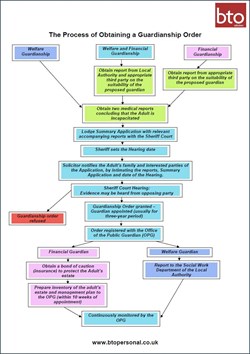26 March 2021
As America celebrates Brain Injury Awareness Month, the BTO Personal team discusses the implications and legal process involved in the event of a sudden or unexpected loss of capacity and the steps that can be taken to prepare for such circumstances.
There is a common misconception that incapacity is only relevant for the elderly who may suffer from diseases such as Alzheimer’s or Dementia. However, the Centre for Mental Health provides that 1.3 million people across the UK are living with the effects of a brain injury.
|
Emily Couchlin, Trainee Solicitor |
Furthermore, 348,453 brain injury hospital admissions were recorded in 2016/17. Whilst it is easy to assume that we will never be affected by such an injury, it is important to consider the consequences of failing to attend to your affairs at an early stage.
Who would look after my affairs if I lose capacity?
The default position is that no one is legally entitled to deal with your affairs. Unfortunately, this leaves your family and loved ones, as well as potentially a medical team and other key parties, in limbo as to making decisions on your behalf.
What would the next steps be?
The legal process required is known as a Guardianship Order. This is where a family member or other significant individual applies to the Court to gain authority to manage your finances and welfare.
Obtaining a Guardianship Order is a complicated process involving a summary application to the Sheriff Court. This application must be accompanied by supporting reports from your Local Authority and an accountant if the application seeks financial powers.
The preparation of these reports involves an assessment of the applicant’s suitability for the role as guardian. Two medical reports confirming incapacity must also be lodged with the Court. It is highly likely that a solicitor will require to be involved in this process.
If you would like more information about the guardianship process, please download our ‘Guardianship Process’ flowchart here.
The drawbacks
Given the involvement of the Court in such matters, the Guardianship process has a number of negative implications:
- The process can be significantly onerous, timely and stressful. A straightforward Guardianship application may take over a year to be granted.
- The process is costly, given the formal reports required and the related legal costs, all of which can run into £1000s. This is particularly difficult given that your finances can not be accessed until the Order is in place. Once the Order is in place, there is likely to be ongoing legal and administrative costs during your lifetime.
- The Court has the final decision. This means that you lose control of who you wish to have act on your behalf or what powers they may be granted. The Court will apply a ‘minimum intervention’ principle which means your Guardian will only be able to carry out the most basic of tasks. This can also cause family disputes as to who is best suited for the role of Guardian.
- Your Guardian will be subject to an annual audit and continuous monitoring by the Office of the Public Guardian. This may include working closely with the Social Work Department of the Local Authority or preparing a financial inventory and management plan for your estate.
How to avoid this situation
Attending to your affairs at an early stage can provide certainty and security for the future. As such, we recommend that everyone, regardless of age, creates a Power of Attorney. This simple document will allow you to decide who manages your financial affairs and decisions regarding your welfare, should you ever lose mental capacity.
If you would like to discuss putting a Power of Attorney in place, please do not hesitate to contact the BTO Personal team who can help assist you through the process.
Contact:
Emily Couchlin, Trainee Solicitor eco@bto.co.uk T. 0141 221 8012




